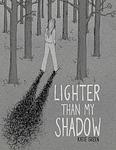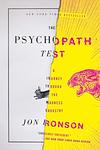The Greatest French, British "Psychological, Nonfiction" Books Since 1950
Click to learn how this list is calculated.
This list represents a comprehensive and trusted collection of the greatest books. Developed through a specialized algorithm, it brings together 300 'best of' book lists to form a definitive guide to the world's most acclaimed books. For those interested in how these books are chosen, additional details can be found on the rankings page.
Genres
The Psychological genre of books typically explores the inner workings of the human mind and emotions, often delving into complex and sometimes disturbing psychological states. These books may focus on mental illness, trauma, relationships, or personal growth, and often challenge readers to confront their own beliefs and perceptions. Psychological books may be suspenseful, thought-provoking, and emotionally intense, offering readers a deep and often unsettling glimpse into the human psyche.
Countries
Date Range
Reading Statistics
Click the button below to see how many of these books you've read!
Download
If you're interested in downloading this list as a CSV file for use in a spreadsheet application, you can easily do so by clicking the button below. Please note that to ensure a manageable file size and faster download, the CSV will include details for only the first 500 books.
Download-
1. The Divided Self by R.D. Laing
"The Divided Self" explores the nature of human identity and the fragile line between sanity and madness. The book delves into the inner lives of individuals diagnosed with schizophrenia, arguing that their experiences are profoundly misunderstood by conventional psychiatry. The author presents a compelling case that these individuals are not inherently disordered but are instead struggling to maintain a coherent self in a world that often rejects their unique perceptions and realities. Through vivid case studies and philosophical inquiry, the book challenges the reader to reconsider the nature of mental illness and the societal norms that define it.
-
2. The Adversary by Emmanuel Carrère
"The Adversary" is a gripping non-fiction narrative that delves into the chilling true story of Jean-Claude Romand, a man who deceived his family and friends for nearly two decades by pretending to be a successful medical professional. The deception culminates in a tragic and violent conclusion when Romand's lies begin to unravel, leading him to commit an unimaginable crime. The book explores the psychological depth of a pathological liar whose life is built on a complex web of fabrications, and it raises profound questions about truth and identity.
-
3. Lighter Than My Shadow by Katie Green
This graphic memoir is a powerful and deeply personal exploration of a young woman's struggle with eating disorders and trauma. Through evocative hand-drawn illustrations, it chronicles her journey from early signs of anorexia in childhood, through years of battle with her inner demons, to eventual recovery. The narrative delves into the complexities of mental health, the impact of abuse, and the resilience of the human spirit. The author's raw honesty and the visual storytelling create an engaging and poignant tale that brings to light the silent suffering of those dealing with similar issues, offering hope and understanding to others on their path to healing.
-
4. The Psychopath Test by Jon Ronson
This book explores the complex world of psychopathy, delving into how the condition is diagnosed and what it means for both individuals and society. Through a series of intriguing interviews and encounters with people labeled as psychopaths, as well as with those involved in identifying them, the author investigates the validity and impact of the psychopath diagnosis. The narrative raises critical questions about the reliability of the psychopath test, the nature of mental health diagnosis, and the ethical implications of labeling someone as a psychopath, all while maintaining a balance between humor, skepticism, and empathy.
-
5. Explaining Humans by Camilla Pang
"Explaining Humans" is an insightful and thought-provoking book that explores the complexities of human behavior and neurodiversity. Written by Camilla Pang, a neurodivergent scientist, the book offers a unique perspective on understanding the world through the lens of autism and ADHD. With a blend of personal anecdotes, scientific research, and philosophical reflections, Pang delves into topics such as emotions, social interactions, and the pursuit of knowledge, providing readers with a deeper understanding of what it means to be human.
Reading Statistics
Click the button below to see how many of these books you've read!
Download
If you're interested in downloading this list as a CSV file for use in a spreadsheet application, you can easily do so by clicking the button below. Please note that to ensure a manageable file size and faster download, the CSV will include details for only the first 500 books.
Download



